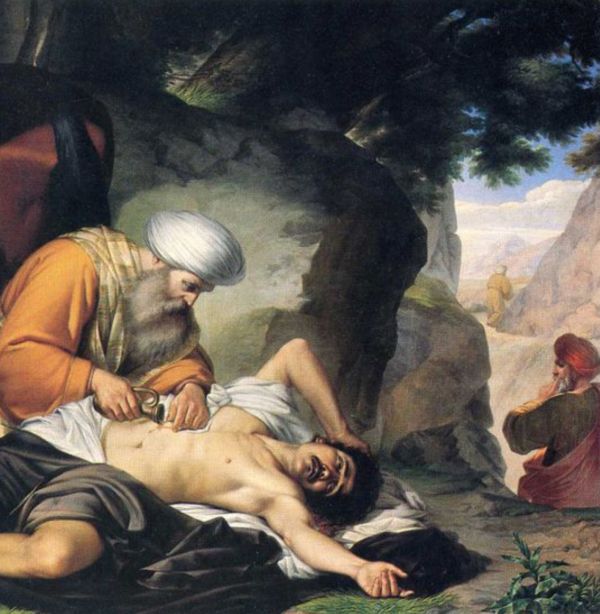Jesus, to the one who asks: "And who is my neighbour?" (Lk 10:29) answers by telling a story.
When faced with someone lying on the ground, one should not pass by, but rather come to his aid, take care of him, because every person who is beaten is one's neighbour, whoever he may be.
The Poverello, who had received mercy from the Lord, had learned the lesson well enough to apply it "sine glossa", literally towards everyone, starting with the most needy and marginalised of his time.
The Poor Man's encounter with lepers constitutes a fundamental page in his growth in the Spirit.
It was a crossroads that profoundly modified him and changed the coordinates of his interior life.
For those unfortunate people he feels compassion and "passion", willing to help them in any way he can, because he is the Suffering Servant.
We read in his wonderful Testament
"The Lord gave me, Brother Francis, to begin to do penance in this way: when I was in sin, it seemed to me too bitter to see lepers; and the Lord himself led me among them and I used Mercy with them.
And as I turned away from them, what seemed bitter to me was changed to sweetness of soul and body" (FF 110).
Thus "the Saint goes among the lepers and lives with them, to serve them in every need for the love of God. He washes their decaying bodies and heals their virulent sores [...].
For the sight of lepers, as he attests, was at first so unbearable to him, that as soon as he saw their shelter two miles away, he plugged his nose with his hands.
But here is what happened: at the time when he had already begun, by the Grace and virtue of the Most High, to have holy and wholesome thoughts, while he was still living in the world, one day a leper stood before him: he did violence to himself, approached him and kissed him.
From that moment he decided to despise himself more and more, until through the mercy of the Redeemer he obtained full victory" (FF 348).
And Francis healed many lepers:
"In the city of Fano, a young man named Bonomo, considered by all the doctors to be a leper and a paralytic, as soon as he was offered very devoutly by his parents to Blessed Francis, was freed from leprosy and paralysis and regained full health" (FF 564).
The care he lavished on lepers, as the Good Samaritan of the Gospel, was transformed, by the gift of the Lord, into power and efficacy in healing diseases of body and spirit.
He had visceral compassion for these souls abandoned to themselves and lived the Gospel of the derelict and marginalised to the letter, loving with extraordinary fondness the Lazarus of his time and beyond.
"Go, do likewise" (Lk 10:37).
Monday, 27th wk. in O.T. (Lk 10,25-37)












